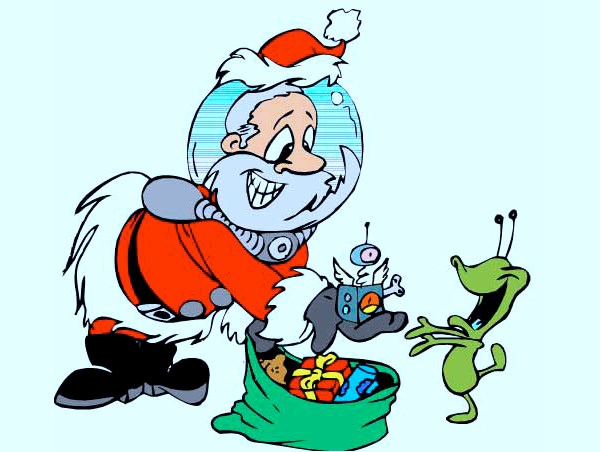I am imagining an English-speaking Martian landing his flying saucer in Richmond this week.
On his descent, he tunes in to a local radio station where, in between weather reports and traffic updates, he hears a lot of talk convincing him that down on Earth, Christmas is another term for shopping and sales.
He clambers out of his spaceship and heads for the library, looking for a copy of the Richmond News.
There, he sees a column about words and language. He tracks down the columnist (me) to find out what this major shopping, sales and spending season called Christmas means.
“Does Christmas mean your money goes stale?” asks Marty (his Earth-name). “Is that why you have to use it up by the end of this month?”
I laugh. “No. Christmas isn’t about money. Christmas is a celebration by Christians of the birth of Jesus on Dec. 25. Centuries ago, Christmas was strictly a religious festival, but it’s gradually become more secular.
“Christmas, as most people celebrate it now, is based on traditions that originated in northern Europe, principally in Great Britain and German-speaking countries. In the 19th century, Queen Victoria and her German husband Prince Albert introduced a lot of customs that have stayed with us.”
Marty listens attentively as I continue explaining. “Although the religious aspect is still important, Christmas has become a holiday when people decorate a special tree with ornaments, when family and friends get together to enjoy each other’s company, to partake of special foods, and sometimes to exchange gifts.”
“I’m hungry,” Marty says, “tell me about the food.”
“Well,” I say, “they’re specialties from all over the world, really, but mostly from England. Let’s start with the beverage. Eggnog is typically drunk at this time of the year. Its main ingredients are eggs, cream and alcohol. The word nog is from the late 17th century and refers to a strong ale brewed in a region of England. My father liked to make the German version of eggnog — Eierlikör — using egg yolks and plenty of vodka. Everyone loved it.”
Marty seems impressed and asks for details about typical Christmas sweets. “Mincemeat tarts are very popular,” I say. “They originally contained meat but now are made mostly of minced (finely chopped), raisins and citrus fruits. Christmas cookies are often spicy — a favourite is gingerbread, which they call Lebkuchen in Germany.
“Another German Christmas specialty you’ll find here is Stollen; a rich yeast bread made with candied citron and raisins, often containing marzipan and sometimes flavoured with rum. Then there’s a cake called yule log; a chocolate sponge cake rolled up and filled with cream.
“It’s named after the Yule log that burns during the 12 days of Christmas (Dec. 25 –to Jan. 6). The word yule comes from the Old Norse “jól”, a 12-day heathen festival.”
As Marty prepares to return to Mars, I give him a Christmas hamper. “It’s full of the goodies we talked about, except eggnog. No alcohol when you fly,” I say, giving him a hug.
His last words to me, as he shuts the spaceship’s door: “May the Force be with you!”
Sabine Eiche is a writer and art historian (http://members.shaw.ca/seiche/)



